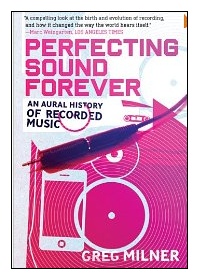Part Three of “In Defense of Links” coming later this week! Some little stuff in between:
- I have begun an experiment in crossposting some of my stuff over at Silicon Alley Insider/Business Insider. Same writing, grabbier headlines! As it is, my posts appear here, and then also at Open Salon (where Salon sometimes picks them up). And I pipe them into Facebook for my friends who hang out there. The folks at SAI have picked up some of my pieces before, and I’m curious about how my point of view goes over with this somewhat different crowd.
- Henry Farrell was kind enough to post a bit about In Defense of Links over at the Crooked Timber blog, and the discussion in comments there is just humblingly good — as well as entertaining. Would every single person who has ever issued a blanket putdown of the worthlessness of blog comments please pay this estimable community of online scholars a visit, and then pipe down? Thank you.
- At MediaBugs, we’re gearing up for some expansions and changes in about a month. In the meantime, we had an illuminating exchange with the Washington Post about a nonexistent intersection. I wrote about it over at MediaShift’s Idea Lab.
- Just in time for the release of his new novel, Zero History, William Gibson has a great op-ed in the Times:
Jeremy Bentham’s Panopticon prison design is a perennial metaphor in discussions of digital surveillance and data mining, but it doesn’t really suit an entity like Google. Bentham’s all-seeing eye looks down from a central viewpoint, the gaze of a Victorian warder. In Google, we are at once the surveilled and the individual retinal cells of the surveillant, however many millions of us, constantly if unconsciously participatory.
In the ’90s I had the pleasure of interviewing Gibson a couple of times — here’s the 1994 edition, in which we discussed why the technology in his early novels never breaks down, and here’s part of the 1996 one, where he talks about building his first website and predicts the rise of people who “presurf” the Web for you.
I recently caught up with Inception, and was amazed at how shot-through it is with Gibsonisms. Inception is to Neuromancer as The Matrix was to Philip K. Dick’s worlds: an adapation in everything but formal reality.


